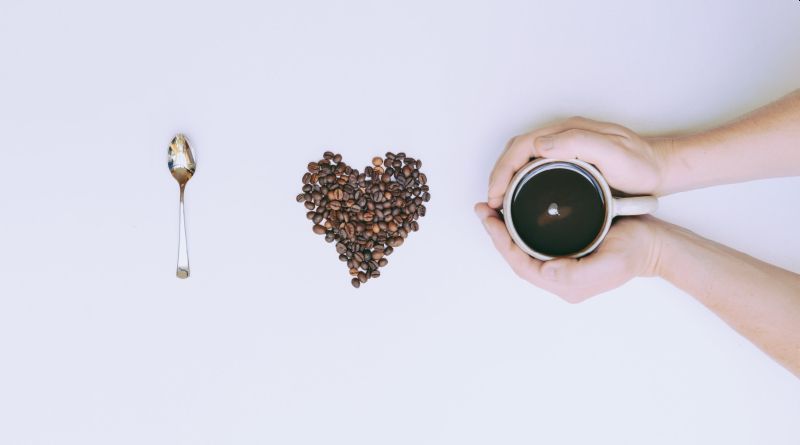Those of us who buy whole coffee beans have to deal with the question of how long to coffee beans last? The entire point of getting coffee beans is to enjoy the taste benefits that come from fresh ground coffee. Beans are edible products and instinctively, we believe there is a date when roasted coffee beans “go bad”.
As is the case with many things, that belief is only partially true. That doesn’t mean we have to essentially discard the “best before” or “use by” dates on coffee. It means there are nuances to consider.
The Point Of ‘Best Before’ And ‘Use By’ Dates
In most jurisdictions, edible items are required to have an expiry date, even if they don’t actually expire. This is a way to protect consumers, though it may not always be an exact science. For example, products like honey carry such usage dates, even though technically honey doesn’t go bad. Or, in the case of the image here, 250 million year old salt with an expiry date.
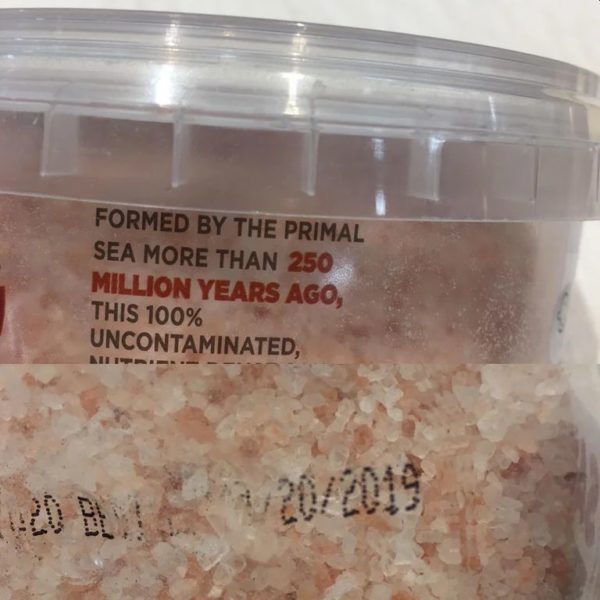
There are factors at play that may affect the exact dates. These may include processing, usage, storage, presence of impurities, or dishonest businesses lying about the dates. Point is, these dates are important and should be considered. However, for some products, the dates can be treated more like suggestions.
Remember, these dates are for the consumer’s protection. Unless you know exactly what you’re doing, it’s better to stick to the dates printed on a package.
Do Coffee Beans Go Bad?
At this point, the natural question is, do coffee beans go bad? The answer is no, at least not in the traditional sense. Roasted beans are unlikely to rot like what we’d expect from most edible items. Roasting removes moisture from the beans. This is especially true for dark roasts, though light roasts lose moisture too.
The low-moisture and caffeine-rich environment aren’t the most hospitable of places for organisms to thrive and rot the beans.
The biggest risk for coffee beans going bad is improper storage that brings moisture to the beans. Once moisture shows up, mold can too, and coffee beans will go bad. Ideally, you want them stored in a cool, dry place, away from sunlight and heat.
While coffee beans don’t go bad, there is a casualty during prolonged storage. This is the aroma and taste. The longer they’re stored, the greater will be the loss of aroma and taste from coffee beans. You could probably still brew a cup of coffee from such beans, but don’t expect it to taste any good.
On the other hand, if the beans have been improperly stored, don’t bother with brewing and discard them straight away.
How Long Do Green Coffee Beans Last?
We’ve got roasted beans covered, but how long do green coffee beans last? They are plant products with a sufficient amount of moisture so they aren’t as well protected as roasted beans. Though they still have caffeine and can be surprisingly resilient to decay.
The key, again, is proper storage. Green coffee beans stored in a cool and dry place will last a long time, even months with ease. However, green beans remain susceptible to bacteria and mold. Caffeine in the beans will slow down the decay, but it won’t help much in poor storage conditions.
How Long Do Roasted Coffee Beans Last?
We’ve touched upon this topic before, but since roasted coffee beans are more important to coffee lovers, it deserves some more detail. So how long do roasted coffee beans last? Provided that you store them properly, a very long time. You could probably store roasted beans for a year and still find the coffee drinkable.
Freshly roasted beans are way more delicious and aromatic than those that have been languishing in storage for months. While there is a general consensus that fresh roasted coffee beans are better for taste, there is no consensus on how long this freshness lasts.
Freshness is a gradient and there isn’t quite a physical or chemical process that can give us exact dates. So there is no clear way to say that coffee that is good for 30 days won’t be good the next day. Mostly, we simply take the word of the coffee roaster for it. Often, this recommendation goes up to four weeks, though it can vary with the roast and individual roasters.
The Quest For Fresh Roasted Coffee Beans
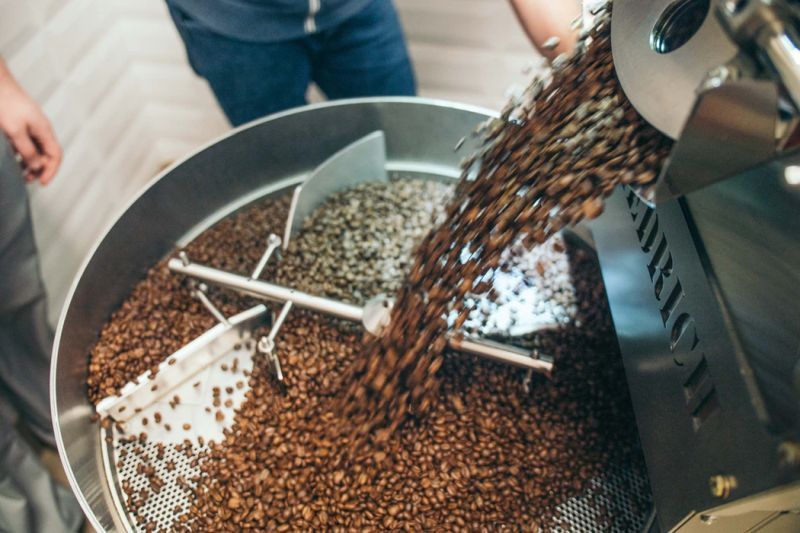
Freshly roasted coffee beans are the key to excellent taste and aroma. Generally, the best place to get freshly roasted coffee beans is from an artisanal roaster in your city. In case there are no artisanal roasters near you, or you want other options, you can consider coffee subscription boxes or order online.
There will be a small delay because of shipping if you choose the subscription or online order method. However, you should still be able to get decently fresh and well-roasted coffee beans. One important aspect to ensure freshness of the coffee beans is to check the “roasted on” date. Any roaster worth their salt will put this date on the beans. This can be the key to decide how you handle those coffee beans.
On Freshness And Taste Of Roasted Coffee Beans
Coffee beans are rarely good to go right after they’re roasted. Generally, they enter a period of degassing after being roasted. About 40% of the degassing happens within a day of roasting. The process continues for several days, though most of it is completed within two days of roasting.
Degassing involves a release of carbon dioxide from the beans. Brewing coffee too soon may see this degassing compromise its taste. Interestingly, this is one of the reasons many coffee brands pack their produce in valved packs. These packs allow the gas trapped inside the package to leave, but don’t allow air to go inside the package.
You can brew coffee once most of the degassing is done, i.e. 2-3 days after the coffee is roasted. An interesting aspect of degassing visible to the consumer is blooming.
When you brew coffee, adding a small amount of water to the coffee grounds will see bubbles forming. These bubbles are representative of degassing. Old, stale coffee doesn’t quite show any blooming. For fresh coffee, the coffee bloom can be quite lively.
Does Ground Coffee Last As Long?
Simple answer: no.
When a manufacturer sells ground coffee, they take precautions to ensure that the grounds remain fresh. These can include techniques like nitrogen flushing and airtight packaging. A regular consumer does not have access to these methods.
Your coffee will begin to lose freshness as soon as the package is opened. Storing in an airtight box helps, but it isn’t a foolproof method.
This is one of the reasons the use of freshly ground coffee beans is recommended. Grind beans right before you need them and brew them for your cup of coffee. It’s best not to let freshly ground beans sit for more than 20 minutes. They lose flavor relatively quickly. The longer you let them sit, the faster they lose their taste.
How To Store Coffee Beans
So you have some great freshly roasted coffee beans. Now, it is as important to know how to store coffee beans. We’re not just concerned about coffee beans going bad, we also want to keep their flavor intact.
A conventional method is to keep them in an airtight container, away from heat, moisture, and light.
Another useful strategy is to divide the coffee beans into smaller containers. Each of these containers should be chosen keeping the requirements of freshness in mind. Every time you open a container for coffee, the beans are exposed to air. Using smaller containers means that not all beans have to be exposed to air every time you want a cuppa.
Storing Beans In A Freezer
Many people swear by this method for long-term storage. I’m not a fan of this method for regular storage, but if you’re in a tight spot, this might help. It might even be an excellent storage option. It is claimed that keeping coffee beans in a freezer will keep their flavor intact for 3-6 months.
When placing beans in a freezer, make sure that they are in an airtight container. They should also be protected against moisture because frosted coffee beans aren’t much good.
When you want coffee, get the beans out of the freezer and put them to use. Let the coffee beans reach room temperature before you grind them. I’ll recommend against putting beans back into the freezer. Use the freezer only for long-term storage, not as daily-use storage for beans.
Every time you open the container, moisture is added to the box. Soon enough, you’ll find beans that have lines of frost on them. As this melts, the beans will become wet and soggy. You could try and remove moisture every time, but it isn’t worth the effort.
Storing Coffee Beans In A Canister Or Jar
Jars are very popular options for storing whole coffee beans. Given the popularity of this method, you can get jars specifically built to store coffee beans. For their part, the canisters are mostly airtight and opaque. This blocks oxidation as well as changes due to light. Some canisters also include options that make degassing easier.
For your part, remember to keep the jar in a cool and dry place. While the jars are built to store beans in the best possible way, they can’t really provide a temperature-controlled environment for the coffee beans! That part’s up to you.
Top 3 Coffee Bean Storage Canisters
1. Death Wish Coffee Airtight Canister
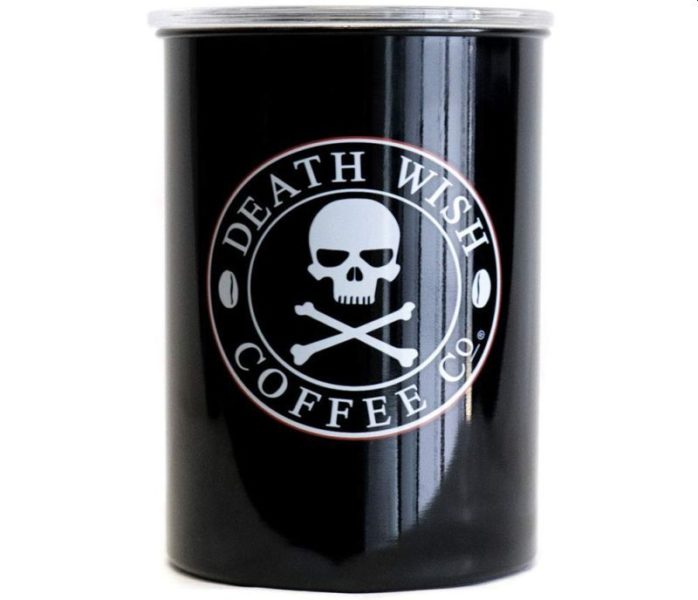
Death Wish Coffee Airtight Canister shows off the logo of the company in an all-black background. The canister is made from stainless steel and is vacuum sealed to make it completely airtight.
There’s enough space in the canister to store a pound of beans or ground coffee. Death Wish coffee is known for being one of the strongest coffees on the market. Their high caffeine content is quite a draw. I guess this container is quite the place to store that super strong coffee!
2. Kitchables Coffee Canister
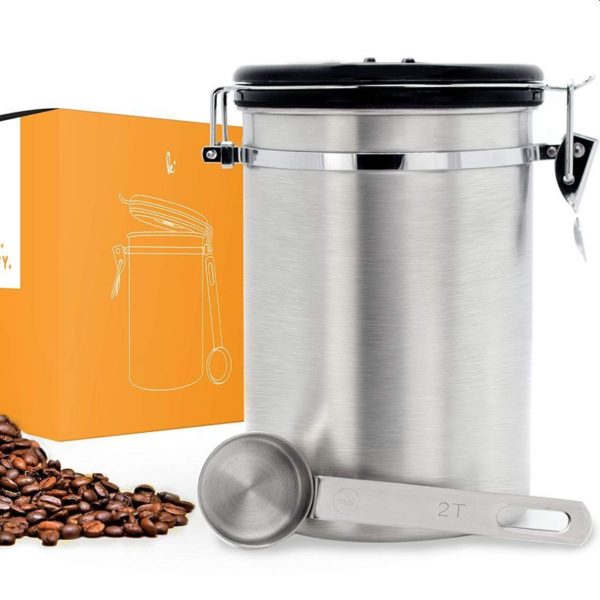
Kitchables Coffee Canister is a minimalist-looking jar for holding coffee beans. Its brushed steel exteriors look great. The canister itself is airtight to keep the coffee beans fresh. However, it does include a valve in case there’s a need to release air caused by degassing.
Turning the valve will allow air to escape from the canister, though it won’t allow any air to enter. The canister has enough room for one pound of coffee. A scoop is included for convenience.
3. Planetary Design Airscape Coffee Storage Canister
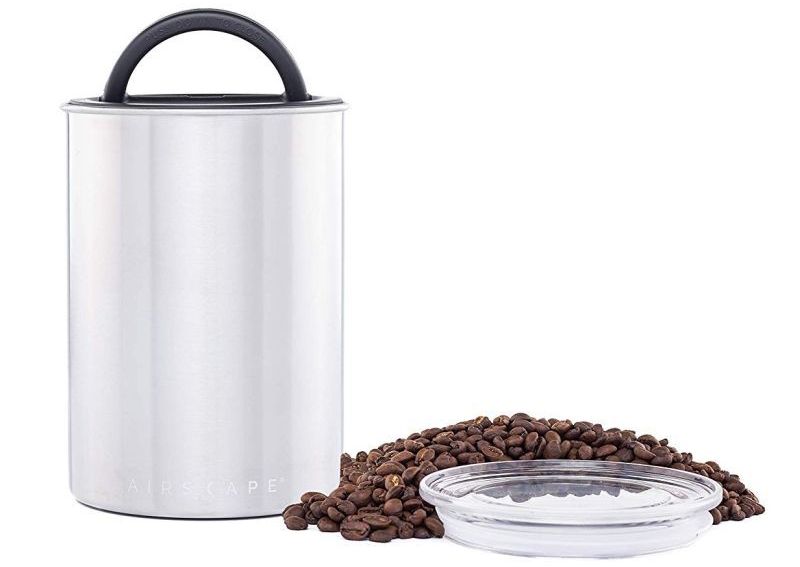
Planetary Design Airscape Coffee Storage Canister too follows a simple and elegant look. The brushed steel exterior is complemented by a choice of colors to pick from. The airtight canister locks out air to keep the coffee beans fresh.
A valve ensures any carbon dioxide collected inside the canister can be released without allowing air to enter. Planetary Design Airscape Coffee Storage Canister is available in two sizes, medium and small. The medium size canister holds one pound of beans, while the small-size holds a half-pound.
The Joy Of Fresh Coffee Beans
A good way of getting fresh coffee beans is to buy them from an artisanal roaster. Check the date they were roasted on and buy beans as close to that date as possible. Usually, it is recommended that the beans be consumed within up to four weeks. However, they can last much longer.
So how long do coffee beans last? Provided they’re stored well, coffee beans can easily last months. However, they will lose flavor as time passes. If you wait too long, you might be stuck with stale coffee that doesn’t have much by way of taste or aroma.

